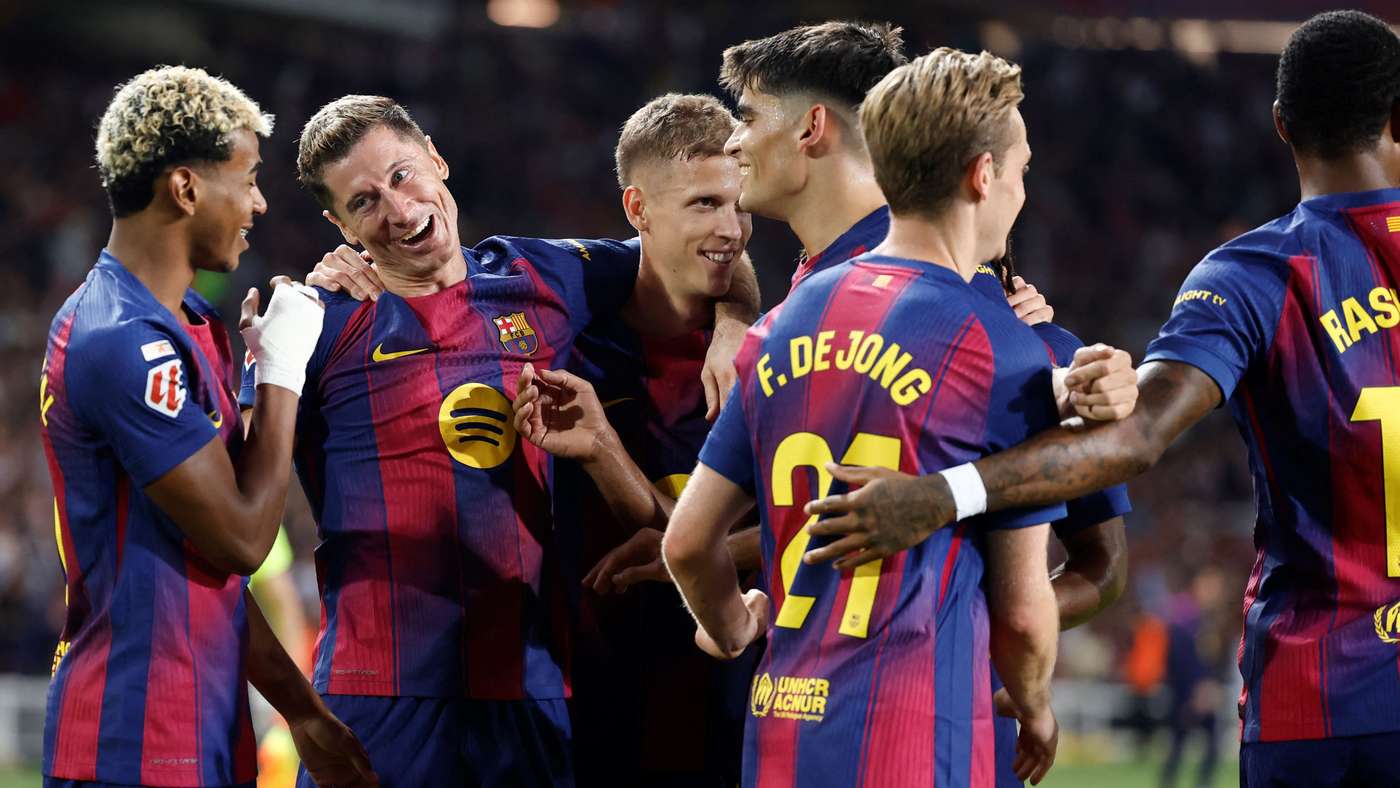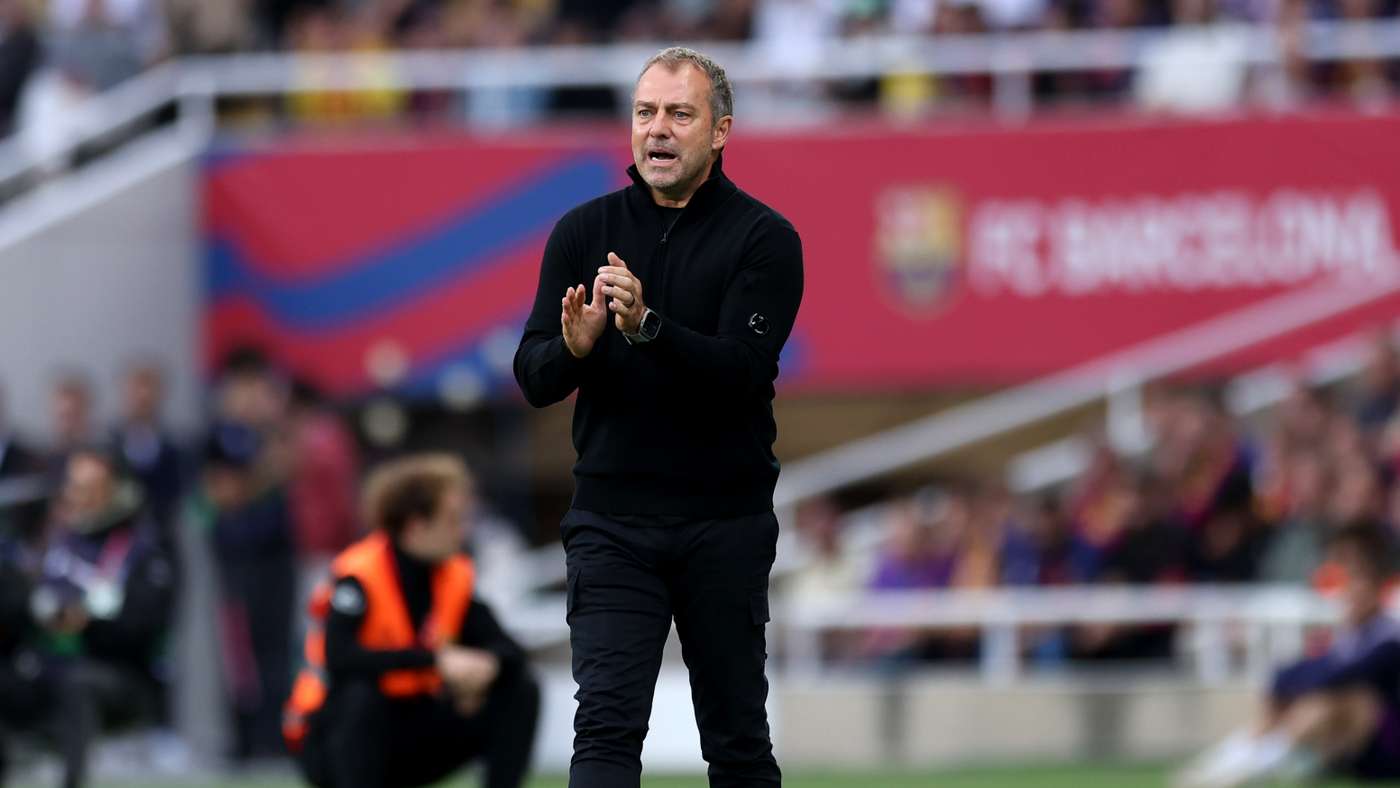PSG Shatters Barça at Camp Nou: A 2025 Comeback That Redefines Europe Night
1 October 2025

Match Recap
Barcelona suffered their first defeat of the season, going down 2-1 to Paris Saint-Germain on Wednesday at the Lluis Companys Olympic Stadium in the second matchday of the Champions League group stage.
Barcelona opened the scoring through Ferran Torres in the 19th minute, but PSG struck back with a late first-half equalizer by Sini Mayolo in the 38th minute and then sealed the win with Gonzalo Ramos on 90 minutes.
With this result, PSG move to six points in the group, while Barça stay on three, a position that could reshape the early dynamics of the pool.
Before kickoff, Barça had not tasted defeat this season, boasting seven La Liga matches without loss and one Champions League tie. PSG’s comeback represented a new record for the club in 2025, reinforcing their resilience in Europe.
Barça were hampered by several absences, including Ousmane Dembélé and Khvicha Kvartatskhelia, with Joao Neves also sidelined by injury just before kickoff.
Opta notes that PSG have now won eight of 15 matches in 2025 when they conceded the opener, a club record for a calendar year.
The match underscored PSG’s cross-European credentials, as they became the first side in European competition history to win three away games against Barcelona in a row across all competitions.

Returning to Camp Nou
Barça’s management set November 22, Saturday, as a potential date for the team’s return to the Spotify Camp Nou after the international break, if the venue can host at least 45,000 spectators, a figure close to the current capacity of the Louis Companys. If the third phase is approved, capacity could rise to 62,000, significantly boosting revenue.
Continuing to play at Montjuïc could provide strong financial cushions as Barça balances fixtures with ongoing development work on the Camp Nou project, ensuring a steady revenue stream during construction.
The club is weighing the option to delay the Camp Nou return to protect project momentum, with a final decision still under discussion at board level. Camp Nou remains one of football’s most iconic venues, a symbol of both sporting excellence and Catalan identity.
Opened on 24 September 1957 with a friendly between Barça and Legia Warsaw, the stadium’s creation reflected Barça’s growth in the mid-20th century, aiming to accommodate a rising fanbase and a more ambitious club footprint.
The idea for a larger home came as the old stadium at Les Corts could no longer house growing crowds. Building Camp Nou took three years and a historic cost of about 288 million Spanish pesetas, a figure that underscored Barça’s ambitions for European prominence.
Since its inauguration, the stadium has hosted landmark moments: the 1999 European Cup final between Manchester United and Bayern Munich, the 1982 World Cup matches, and Barcelona’s illustrious European campaigns led by coaches and players who defined eras. It has also been a stage for Catalan identity during tense political times, with the southern stand, the Gol Sud, a hive of passionate supporters.
Today, Barcelona envisions Camp Nou as a modern centerpiece—an architectural jewel with more seats and upgraded facilities to deliver an elite fan experience while preserving the club’s heritage. With ongoing upgrades, the ground hopes to remain a cathedral of football for generations.
Two punchlines to close: 1) If leadership is about keeping the lead, tonight Barcelona learned a new lesson in humility—PSG pulled a late upgrade and the lift still stuck on the 90th minute. 2) PSG’s comeback tonight proves that in football, predicting the end is a risk; the scoreline just wrote a plot twist even the snooziest pundit couldn’t forecast.



